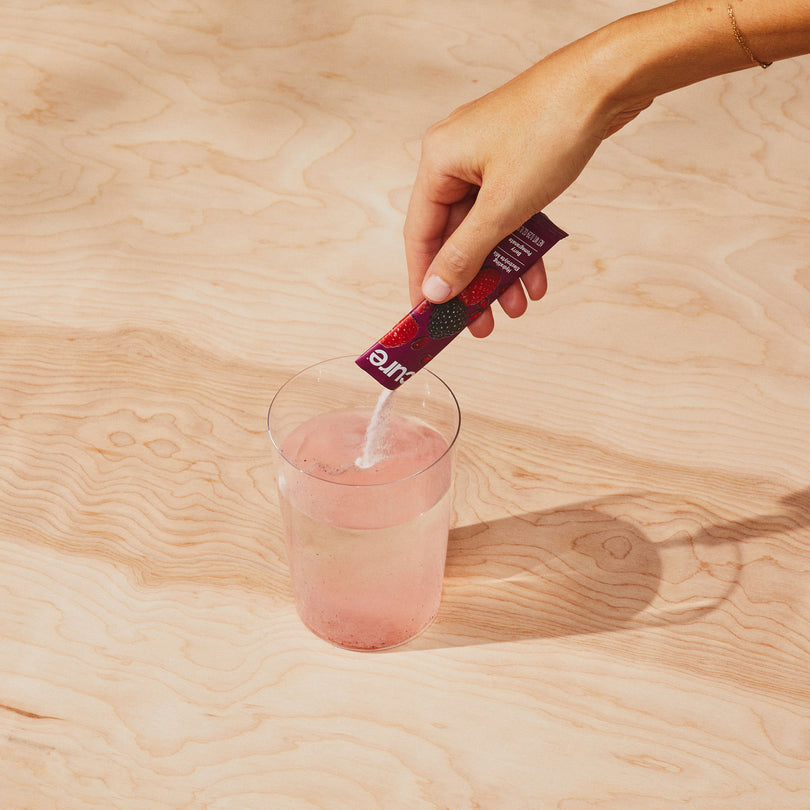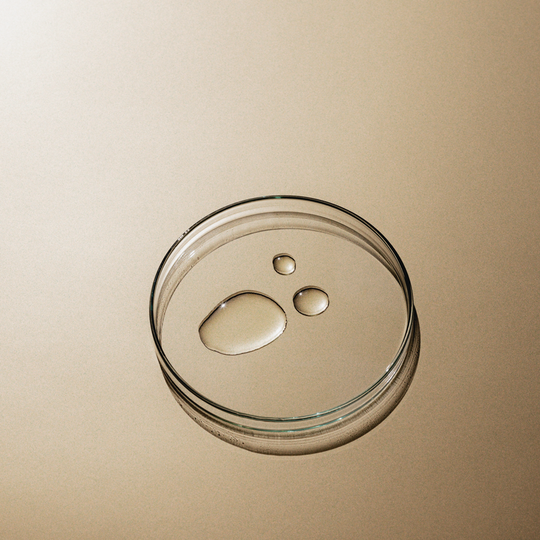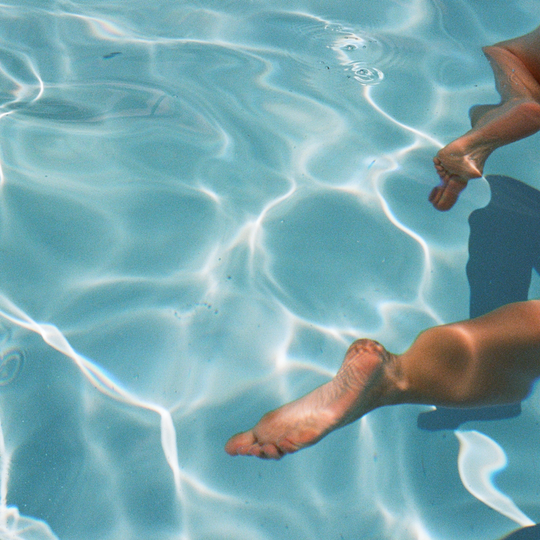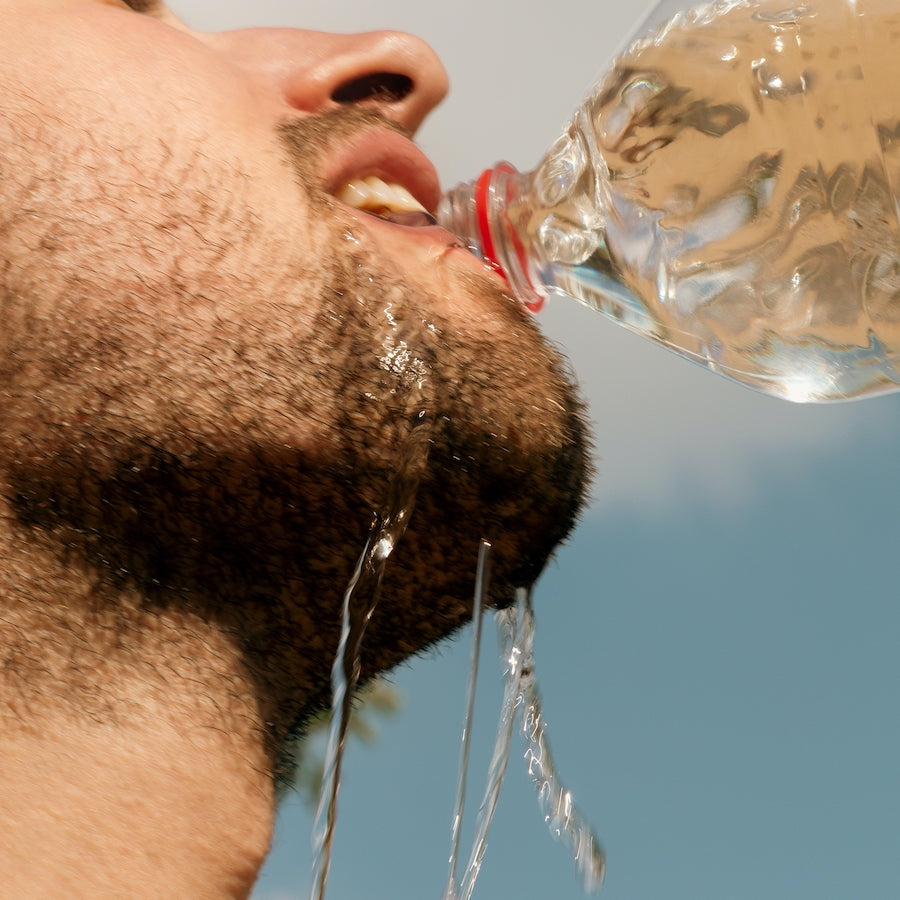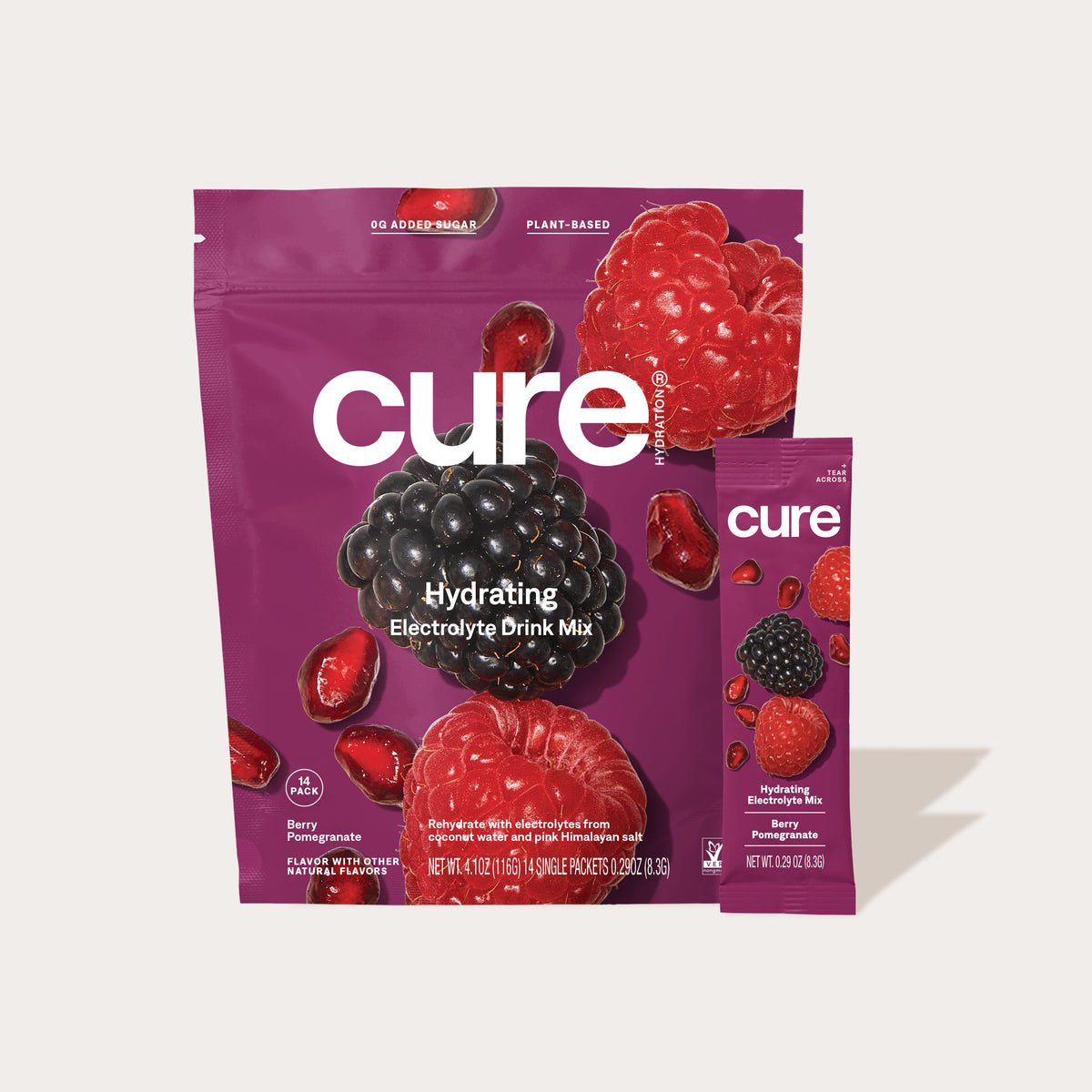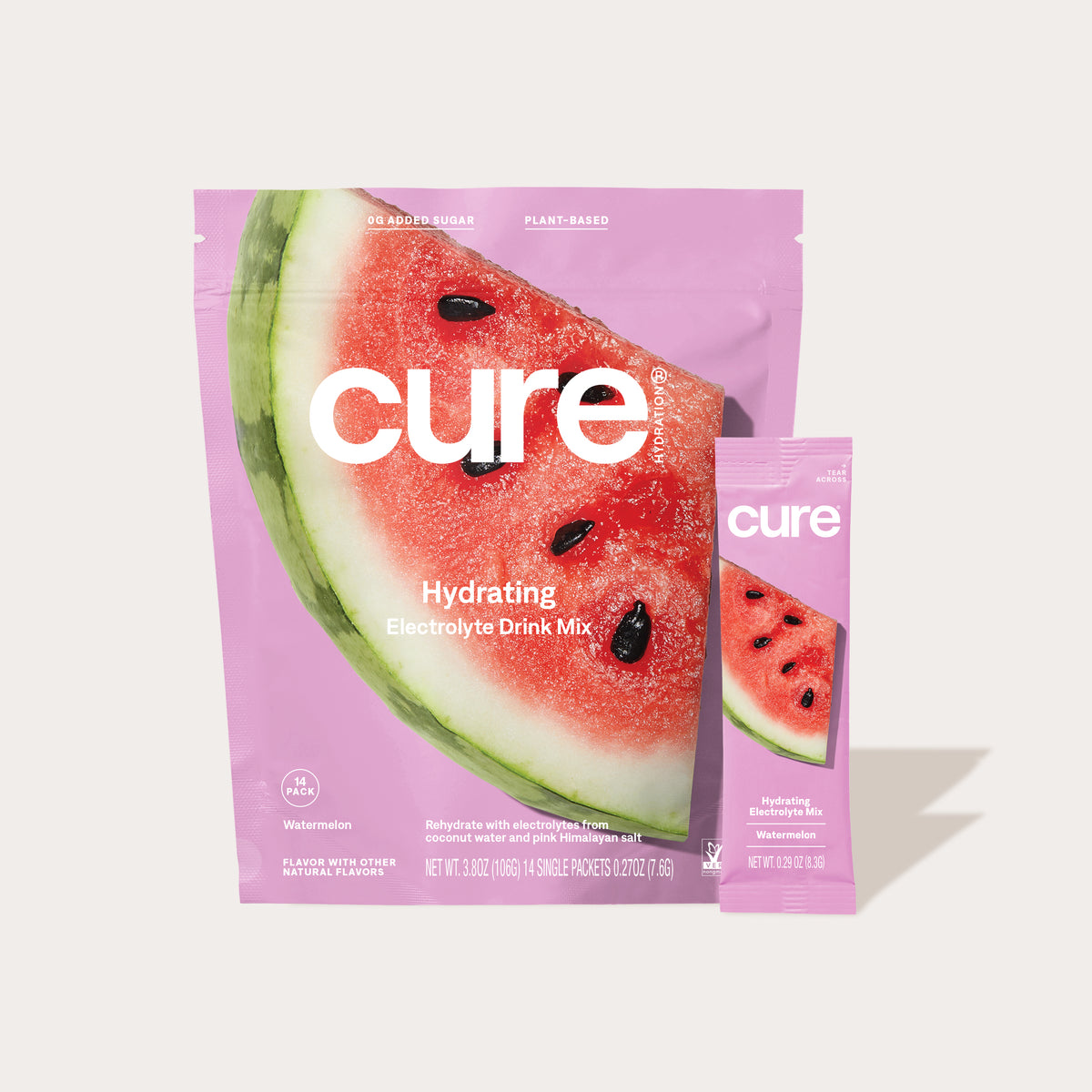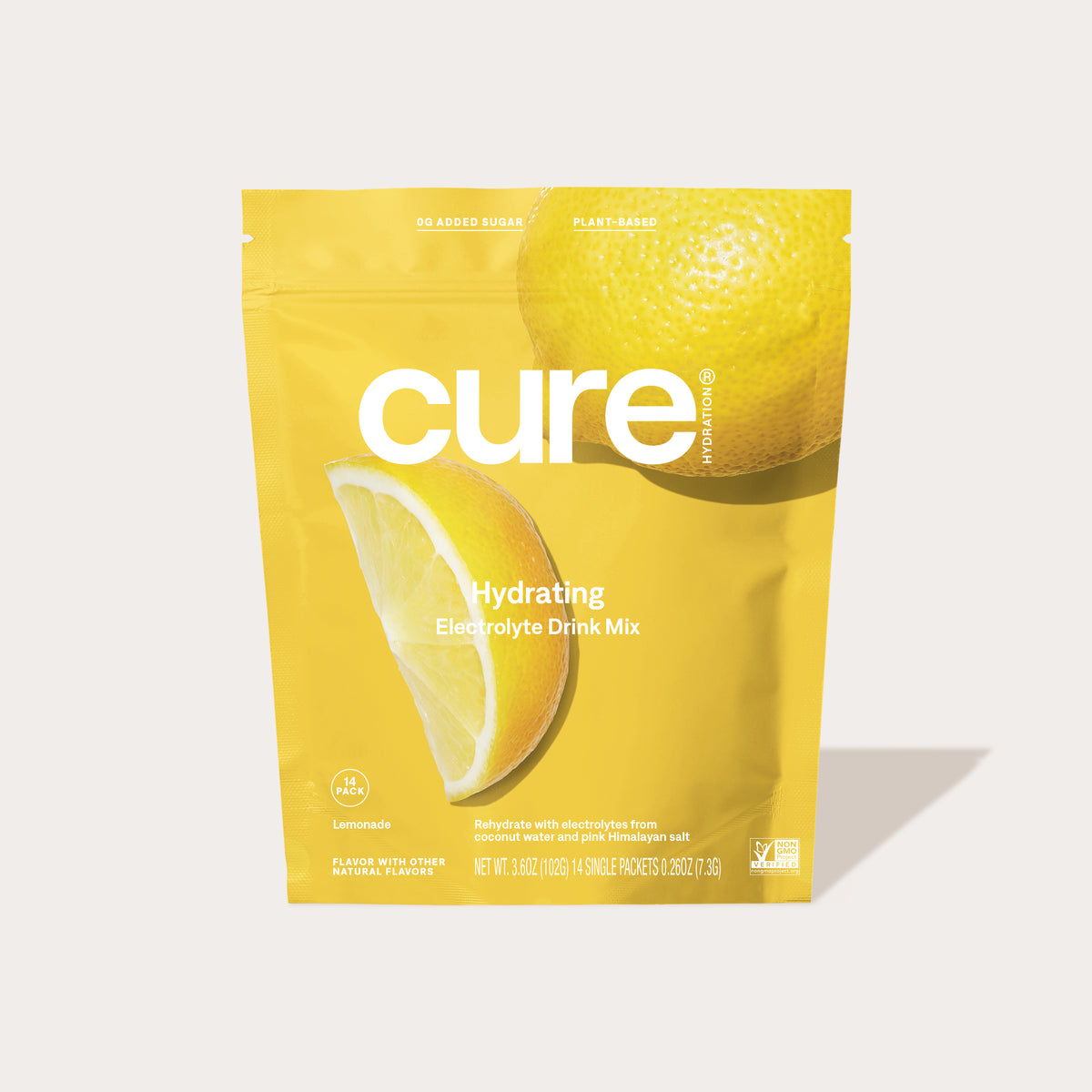In this article:
- What is dehydration?
- Symptoms of dehydration
- Effects of dehydration
- Four reasons why you're thirsty
- The best cure for dehydration

If you’re a bit more thirsty than usual, then you might feel a bit like a detective trying to get to the bottom of the issue. After all, every single part of your body uses water and electrolytes in order to function at its best. Any little imbalance in the process can lead you to feel thirsty—a sure sign of dehydration.
To help you figure out why you’re feeling thirsty, we compiled this brief guide that tells you everything you need to know about hydration. Read on to discover what dehydration is, what its symptoms are, and how they can affect you. And most importantly, get to the bottom of your burning question: Why am I so thirsty?

What Is Dehydration?
Your body is a complex machine that’s constantly working to achieve balance. The thirst response is a perfect example of this at play. When you feel the desire to drink something, that’s your body’s way of telling you that you’re dehydrated.
Dehydration typically refers to a deficiency in total body water. While there’s no one clinical definition for dehydration, it’s still a very real phenomenon that affects millions of people. In fact, one in five older adults is dehydrated. Not only does being dehydrated make you less efficient—after all, as little as 1% of water loss is linked to reduced cognitive performance—but dehydration is also associated with increased risk for chronic illness.
While it may seem like dehydration is the simple case of getting too little water, it’s actually a bit more complex than that. Not only can dehydration mean a deficit in water, but also in electrolytes—electrically-charged molecules such as sodium and potassium that play many vital roles in your body. In addition, it has various causes that have little to do with getting your recommended daily water intake in.
Your body uses a complex system to maintain optimal fluid levels, which is primarily accomplished through special osmoreceptors in the brain. When these receptors sense dehydration, they stimulate an area of the brain called the hypothalamus, which causes you to feel thirsty.
In addition, these receptors also cause your kidneys to conserve water by releasing antidiuretic hormone (ADH). This directs the kidneys to absorb more water from the body, which can lead to water retention.
Last, these receptors lead to lowered blood pressure, which leads to the secretion of renin from the kidneys—this is ultimately responsible for increasing how much sodium and water your kidneys will absorb to balance out the dehydration.
What Are the Symptoms of Dehydration?
Doctors can officially diagnose dehydration by running a blood test. By checking your body’s levels of fluids and electrolytes, your doctor can determine if you need to supplement or to even be put on an I.V. However, it’s just as accurate to check for symptoms of dehydration to know if you’re suffering from it.
While excessive thirst is a sure sign that you’re dehydrated, here are some other ways to tell.
If you’re an adult, you may feel:
- You have an extremely dry mouth
- Your urine is a dark color (think the color of apple juice or even darker)
- You’re urinating a lot less often than usual
- Your skin feels dry
- You feel tired
- You feel dizzy
- You have trouble concentrating
- You feel hungry
In young children, some additional symptoms may include:
- Being unusually sleepy
- Crying without tears
- Irritability
- Sunken eyes
- No wet diaper for several hours

What Are the Effects of Dehydration?
We can’t overstate the importance of water. There’s a reason it composes about 60% of your total body weight. It’s responsible for distributing diverse molecules to your cells (which includes oxygen), removing waste products from your organism, regulating the temperature of your body, and carrying out complex cellular processes.
For this reason, when you’re dehydrated, you may experience a variety of side effects. This may include:
Increased Fatigue
When you’re dehydrated, your blood pressure can drop. This means that your heart is pumping less blood through your body, which leads to your cells receiving less life-giving oxygen that it needs for energy.
Dizziness
Since you’re not getting as much oxygen as usual, you may also feel dizzy—especially if you stand up too quickly.
Muscle Cramps
If your dehydration is caused by too few electrolytes, then you may experience cramping in your muscles.
Dry Skin
Every organ in your body requires water—the skin included. If you’re noticing that your skin feels dry no matter how much lotion you use, then it may be a sign that you’re dehydrated.
Impaired Heart Function
The more dehydrated you get, the more difficult it becomes for the heart to function properly. As a result, you may experience an increase in heart rate and less nutrient-rich blood getting to your organs and muscle tissue.
Urinary and Kidney Problems
Being dehydrated for too long can lead you to accumulate bacteria in your urinary tract. Not only does this increase your risk of developing a urinary tract infection, but it can also lead to kidney problems down the line.
Seizures
Although this is rare, an acute seizure can be brought on by a lack of electrolytes. This happens because electrolytes—which carry an electric charge—are important for brain function. Their imbalance can lead to uncontrolled electrical activity between brain cells, which leads to the abnormal muscular contractions that define seizures.
Hypovolemic Shock
Also known as low-blood-volume shock, this condition is characterized by an excessively low blood pressure that severely decreases how much oxygen your body receives. While uncommon, this is an emergency condition that can lead to organ failure. For this reason, it’s important to address it as soon as possible.
4 Reasons Why You’re So Thirsty
Dehydration is a complex process. For this reason, there’s no simple answer for why you may feel thirsty. Here are a few possible reasons that may explain your increased thirst.
1. You’re Not Getting Enough Water and Electrolytes
This can happen for very simple reasons, such as forgetting to drink because you’re busy. This problem is also common for those with reduced mobility or mentation (such as older adults).
In addition, it could also mean that you’re not getting the right amount of water for you. While the standard recommendation is to get eight glasses of water per day, some of us require significantly more than that. For this reason, you should drink however much it takes for your urine to be a light yellow color. Drinking other beverages like coffee and soda can also contribute to your being dehydrated, especially if they contain caffeine.
Lastly, you may feel dehydrated because you don’t have enough electrolytes in your body. This could be brought on by following a diet that’s either way too low or too high in salt. In addition, you should try to balance your sodium and potassium levels for optimal hydration. Last, drinking too much water can actually lead to an electrolyte imbalance, which—ironically—can lead to increased feelings of thirst.
2. You’re Losing Water Through from Skin
Even if you’re getting in your normal intake of water and electrolytes, you might be losing more than you replenish through your skin. This could be due to sweating—especially if you’re doing vigorous cardio. Hot and humid environments likewise increase how much water you lose through the skin.
Lastly, burns and fever can cause your body to direct water to the surface of your skin to cool it down, ultimately leading to dehydration.
3. You’re Losing Water Through the Kidneys
It’s possible to lose excess water through the kidneys, which most commonly occurs thanks to diuretics—any substance that increases the production of urine. Frequent urination can definitely contribute to feelings of extreme thirst.
The one we all know and love is coffee; however, it’s unlike that your morning cup is causing you to feel dehydrated. The most common culprits are medications, such as antidepressants, antihistamines, and those medications used to treat high blood pressure.
4. You’re Losing Water Through the G.I. Tract
Diarrhea and vomiting can cause you to lose a tremendous amount of water and electrolytes in a fairly short amount of time—which mainly occurs through the gastrointestinal tract. This can also happen due to the excessive use of laxatives.
Other Potential Causes of Thirst
While the causes listed above are extremely common causes of thirst, they’re far from the only possibilities. Your thirst also might be impacted by some of the following:
- Pregnancy
- Diabetes insipidus
- Anemia
- Thyroid problems
- Your salivary glands aren’t making enough saliva, which can have a variety of causes
- Smoking
- Xerostomia, also known as dry mouth (which can also contribute to bad breath)
The Best Cure for Dehydration
The best solution for dehydration is preventing it from happening in the first place. If you feel thirsty, it’s a sign that you’re already dehydrated.
For this reason, it’s a good idea to get in sufficient water and electrolytes throughout the day, whether just by drinking enough water or getting some of your daily calories through fruits and vegetables rich in water like watermelon and celery. However, this sometimes isn’t enough to prevent dehydration from happening to you.
That’s where Cure comes in. Our products use premium plant-based ingredients to get you hydrated quickly. Our hydration formula is made with sustainably-sourced coconut water and pink Himalayan salt to get you the perfect ratio of sodium, potassium, and much-needed glucose—a specially formulated combination based on the World Health Organization’s oral rehydration solution.
Choose from a variety of yummy flavors to match whatever mood you’re feeling that day!
Sources:
Full article: A Multidisciplinary Consensus on Dehydration | Annals of Medicine
Acute Symptomatic Seizures Caused by Electrolyte Disturbances | NCBI
Reducing Urinary Tract Infections in Care Homes by Improving Hydration | NCBI
Pitfall in the Diagnosis of Diabetes Insipidus and Pregnancy | NCBI
Physiology, Thyroid Hormone - StatPearls | NCBI Bookshelf
Saliva & Salivary Gland Disorders | National Institute of Dental and Craniofacial Research


